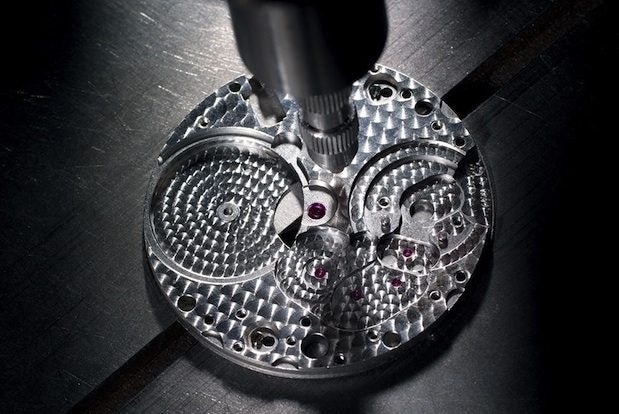
A photo posted by Cartier on its Sina Weibo page touting its craftsmanship. (Sina Weibo/Cartier)
The decline of ostentation rages on in China’s luxury market as wealthy Chinese consumers indicate that they’re looking for quality over status when making an expensive purchase, according to a new survey.
A new report by market research firm Mintel finds that the phrase “craftsmanship” is the word that most defines luxury for 64 percent of urban Chinese consumers, making it their most important consideration. The concept is 10 percent more important than whether or not an item is “expensive,” which was selected by 54 percent, or whether it has “status,” which was the case for 53 percent of respondents.
In addition, craftsmanship gets more important for higher income brackets: 71 percent of respondents with a household income of more than RMB25,000 (about US$4,026) per month define luxury as craftsmanship, which is 10 percent higher than those with a household income between RMB20,000 and 25,000 per month, which came in at 61 percent.
“It’s no secret that Chinese consumers are becoming more mature in their outlook toward luxury goods,” said Director of Research Asia Pacific at Mintel Matthew Crabbe. “What’s especially compelling about this research is that they show the true extent to which this attitude has penetrated the market, in addition to clarifying what a ‘mature’ attitude to luxury looks like in China. Though status is still important to the Chinese luxury consumer, the trend toward luxury consumption for one’s own enjoyment is clear."
Markers like “status” and “extravagance” are far from dead in China when it comes to luxury: 48 percent of consumers with incomes over RMB25,000 still said "status" is a consideration when they purchase luxury goods. Furthermore, consumers with lower incomes are more interested in status than their higher-income peers, as 53 percent of the RMB20,000 to 25,000 category said that it was an important purchase decision. Meanwhile, “extravagance” is still important to 46 percent of urban Chinese with monthly incomes above RMB20,000, and the phrase gets more important as the income brackets decrease (53 percent for those with a monthly income of RMB12,000 to 18,000).
All of this evidence points to a continuation of the decline of bling in China’s luxury market, a trend that mirrors global consumption patterns in the wake of the 2008 financial crisis. The changing attitudes sped up in China as a result of the government’s anti-corruption campaign that began in 2012 and is still in high gear.
“This research highlights that the wealthier a consumer is, the more likely he or she is to appreciate luxury goods for their innate quality and value—and the less likely he or she is to define luxury in terms of external factors such as the status or extravagance of a luxury product,” said Crabbe.
Furthermore, the research also points to the rising status of niche brands, including Chinese companies, among Chinese luxury consumers. Foreign brands still dominate the watch and cosmetics categories, but a significant 43 percent of respondents said that Chinese and foreign luxury clothing brands provide the same quality product, while 40 percent said the same for shoes. In addition, 16 percent believe that Chinese brands are better in these categories. “There is a growing consciousness that, in many cases, Chinese brands are able to offer craftsmanship and design to a level that is on par with or above foreign brands,” said Crabbe.